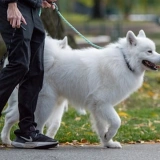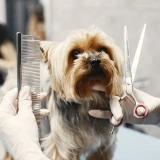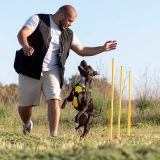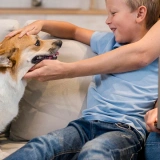The Labrador Retriever is one of the most popular dog breeds globally — and for good reason. Originally bred in Newfoundland to retrieve fishing nets and game, Labradors have become versatile companions prized for their gentle temperament, trainability, and affection for people.
Labs are intelligent, sociable, and energetic, thriving in families where they’re involved in daily life. They get along well with children, strangers, and other animals, making them one of the most well-rounded breeds for active households.
They come in three classic colors: yellow, black, and chocolate, and are known for their short, water-resistant double coat and signature wagging tail.







